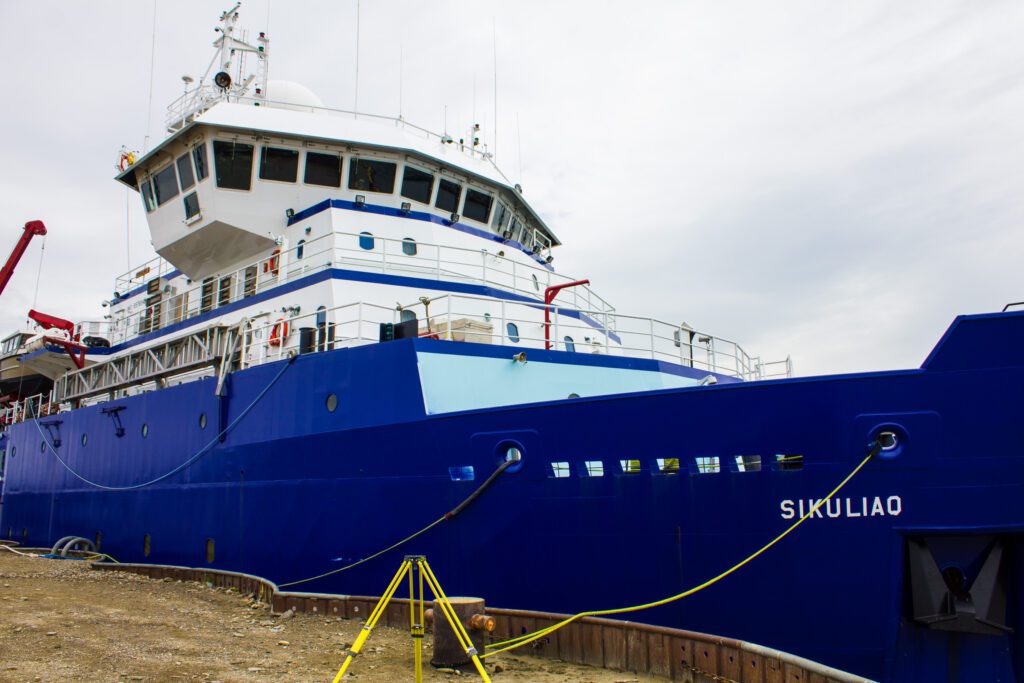The Bering Straits Regional Commission says travel restrictions for Alaska Natives to Chukotka have been lifted—leaving many with relatives on the Russian side of the strait feeling relieved, tired of being used as pawns in international disputes.
Since time immemorial, Natives on both sides of the Bering Strait have traveled freely between what is now Alaska and Chukotka. Political egos and ensuing conflicts after World War II put a stop to this fluid exchange of people and goods.
The director of the FBI at the time, J. Edgar Hoover, ordered the border closed in 1948, urging that, “U.S. national security interests should outweigh the interests of local Eskimos.” John Waghiyi of Savoonga remembers the decades-long border closure. “Sixty years of closure, the Cold War was not good for us,” Waghiyi said, “and then to make it difficult for our people several years ago, you know it’s tough.” “We need to be able to go back and forth,” he stressed, “it’s our god-given right.”
Relations eventually thawed and the border was reopened in 1989. That same year, the U.S. and the Soviet Union signed an agreement reinstating visa-free travel for eligible Natives on both sides of the strait.
That 1989 agreement was curtailed three years ago when all travelers, including Alaska Natives with ties to Chukotka, were required to apply for and purchase a visa to travel across the strait.
Now Vera Metcalf with the Bering Straits Regional Commission says the agreement was updated just last month. Qualified Native Alaskans can again travel visa-free under the Bering Straits Agreement, with visits in Chukotka limited to 90 days as defined in the agreement.
Just why the agreement was reinstated is unclear. Julia Straker, a spokesperson for the U.S. State Department, explained that “due to administrative issues U.S. participants had not been able to travel under the agreement during the past three years.” Without revealing any details, Straker and Metcalf both confirmed those issues have now been resolved.
Despite enthusiasm for the change, various border closures since 1948 have made it more difficult for Natives with ties on both sides of the strait. Waghiyi is frustrated that international disputes infringe on their right to travel. “I don’t think that people that have ties to Alaska or Chukotka need to be used as pawns” Waghiyi urged.
With visa-free travel reinstated, Waghiyi looks forward to visiting family across the strait and hosting more cultural exchanges between Natives from Alaska and Chukotka in the years to come.







